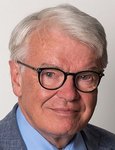05.10.2022
17:25 - 18:10
Uhr
Vortrag
Special Topics
Salon 5 - 6
Dr. Thomas Fehlmann
Euro Project Office AG
Measuring Quality for 4th Generation Industrial Products - Six Sigma reinvented for Software
Six Sigma means, in engineering and manufacturing, to limit variations in the product manufactured to a controllable degree; small enough, whenever possible. Outliers must not happen because they are waste of money and resources.
Products of the 4th Industrial Revolution are characterized by heavy use of software for providing the intended functionality. Typical 4th generation cyber-physical products include Artificial Intelligence, Learning Machines, Adaptive Products, Autonomous Vehicles, Medical Instruments. While quality for typical 3rd generation products were related to mechanical precision, cyber-physical products suffer from software quality issues. We successfully measure physical precision. Why would we not also be able to measure the precision of software?
Measurement methods for the functionality of software exist since many years; however, they were in use for predicting cost of software development, less than for assessing its functional quality. The ISO standards 14142 and 19761 define these methods, define suitable models, and can be used for Six Sigma for Software.
Technically, quality metrics are associated with Six Sigma Transfer Functions (SSTF) that map causes and effects. The predictability and variability of effects are under the control of their causes, and this control must be determined by SSTFs. Determining these SSTFs can be a tedious task and may require the help of higher mathematical and numerical methods.
This talk is aimed at product managers and those responsible for the quality of the software of cyber-physical systems. The measurement methods are explained and demonstrated, but without going into the technical details. Metrics such as test scope, test intensity, test coverage, and defect density will be introduced using a model-based approach. This covers the typical aspects of 4th generation prod-ucts, including mechanics, intelligence, and learning behavior.
The talk is not so much an experience report as a call to disruptive action for companies that want to survive in the new world of cyber-physical products. Companies will have to adapt, and processes will have to change dramatically. You cannot build a product and then test it for security once. You must build security into the design of the product from the beginning, and you need to test continuously until product retirement.
Regarding safety, the certification of 4th generation products can no longer be achieved through pre-release testing alone. It requires a continuous, autonomous, and real-time testing (Autonomous Real-time Testing, ART) process. This includes over-the-air testing of users’ systems while in operation. This is necessary because intelligent systems not only learn, they also unlearn. Moreover, they can adopt bad behavior. Both can become dangerous in safety-relevant areas. The technics needed for estab-lishing ART include Digital Twins and Kubernetes. We’ll explain them at management level in the talk.

Dr. Thomas Fehlmann, Euro Project Office AG
Dr. Thomas Fehlmann is a senior expert in software metrics and testing, a Lean Six Sigma Black Belt for lean and agile software development and promoter of customer-oriented product design and testing. He spent most of his professional life as a quality manager for software organizations. As such, he has led a few companies to global market dominance using Quality Function Deployment (QFD) and Six Sigma for Software. He has run the Euro Project Office since 1999 and is internationally recognized as QFD expert and as software and test metrics expert.
Since 2016, Thomas has been an academic member of the Athens Institute for Education and Research. Since 2019, he is involved in the development of ART – Autonomous Real-time Testing. He is member of the ASQF, involved into Secure Software Engineering, member of the board of German QFD Institute, member of COSMIC, NESMA, GUFPI-ISMA and ASSEMI. Thomas is a frequent presenter at conferences on topics including Six Sigma, QFD, software quality, software testing, project management, software engineering and software metrics.
